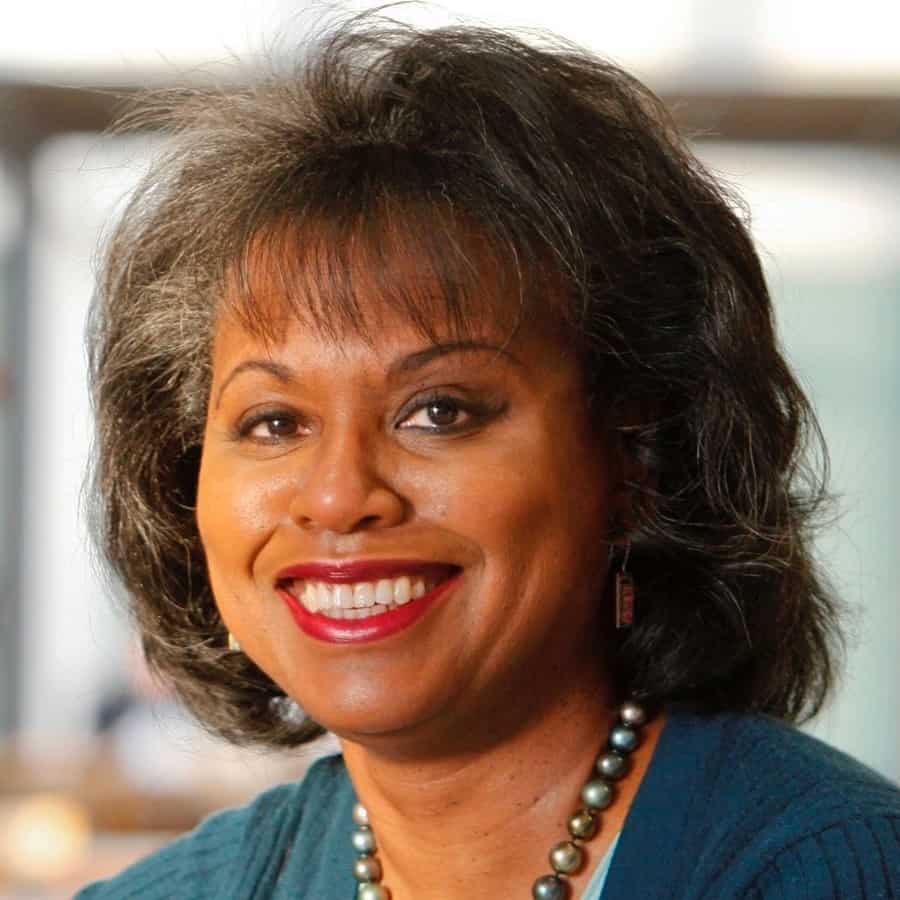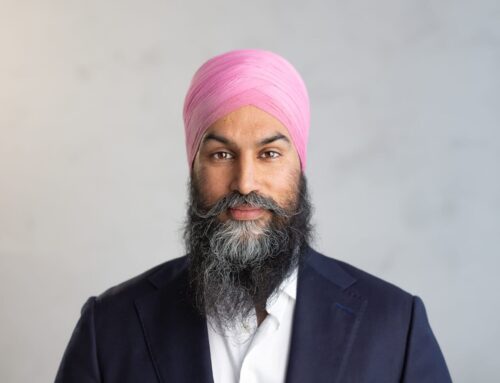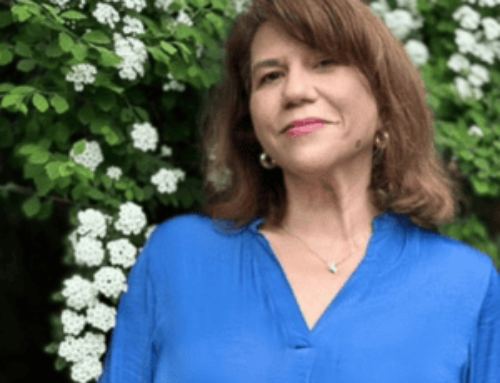Do you remember where you were when Anita Hill took the stand? Many of us can still picture her groundbreaking testimony in the Supreme Court justice confirmation hearings of 1991.
Even if that historic moment happened before your time, you got a crash course this year as the Brett Kavanaugh confirmation hearings unfolded in an eerily similar way. And in the months prior, the #MeToo Movement’s revelations of sexual harassment and abuses of power also brought Hill’s trailblazing advocacy to the forefront. In 2017, she was chosen to lead a Hollywood commission on sexual harassment and gender equality in the workplace.
As keynote speaker at The Exchange: Conversations to Inspire Change on Dec. 3, 2018 in Toronto, Hill wants to reflect on the current landscape and share what’s working when it comes to dealing with sexual harassment in the workplace. “Overall, the message is that I want women to leave believing that change is possible,” Hill said in a recent interview.
Keep reading to learn more about Hill’s perspective on #MeToo, the role of social media in making progress, and what she’s hearing from the next generation of women. And join us at The Exchange before it sells out!
Q: It’s been more than a year since the allegations against Harvey Weinstein emerged and since the #MeToo Movement went viral. Looking back, how has the movement affected you and your outlook on progress toward ending sexual harassment?
Anita Hill: When you hear the stories coming out and the whole range of behaviours that a new generation of women and men are experiencing, you can’t help but be concerned. Of course, I’ve continued to hear from women on a regular basis for the past 27 years. Unfortunately, the huge number of #metoo stories only confirms much of what I’ve heard anecdotally.
But, I’m also very happy that a new generation of young people are stepping forward to reveal their experiences, and that makes me quite hopeful that this time, people will hear them, and they’ll understand what young women are facing when they reach the workplace, and we’ll be able to make some real progress.
Q: In September 2018, you wrote a New York Times Op/Ed titled How to Get the Kavanaugh Hearings Right. Given that the circumstances of these Supreme Court hearings for Brett Kavanaugh were similar to those of 1991, how did it feel for you to be an observer as this process played out?
Anita Hill: It [was] difficult to watch, because in the past 27 years, I’ve known that people have actually moved forward. We’ve learned from those hearings … that this process matters — that how the senate approaches these kinds of situations will be a reflection on all of the voting public, and can serve as an example, good or bad, to the employers out there who we are urging on a regular basis to step up and be responsive and accountable.
We shouldn’t be pitting the rights of women to be heard and the seriousness of the problem of sexual harassment against the desire for a fair judicial system. In fact, those interests are aligned. That’s how the senators should approach this [process] … to align the two interests to make sure that we have the right people sitting on the
Supreme Court and making judgements in these very same cases for the entire country.
Q: Social media platforms didn’t exist when you testified in 1991. How do you see the role of social media when it comes to making progress on sexual harassment?
Anita Hill: Social media is important because it grabs our attention and it really did, in a very strong way, alert us to the need for more reforms. We had been almost deluded in thinking that we had done enough, and I think we got a wake-up call in that moment of reckoning that happened last year.
After October 2017 and the #MeToo Movement, which really went viral across the globe, no one will be able to say they didn’t know sexual harassment existed, nor will they be able to deny the harm that is being done in the lives of women around the world. Social media also creates solidarity; I think so many of the women got involved because they needed a community of people who had gone through some of the same experiences … and social media was effective in creating that community.
Q: Are there negative aspects to it as well?
Anita Hill: Social media can also, of course, be used as a weapon against women. That was happening before October 2017, so we know that some people do not participate in social media because of the attacks on them. I think we’ve got to have some balance, of course, but in terms of a movement that really has been significant in the past year and has carried on into this year, social media has been a good thing.
Q: In a recent interview with John Oliver, you mentioned the need for companies to invest in bystander training so that people know how to intervene when they witness sexual harassment. How can companies approach this in a way that encourages everyone to feel they have a role in contributing to progress?
Anita Hill: If it’s done well, bystander training [involves] sexual harassment awareness, so that you inform people about what policies an employer has in place. But it’s not just, “Well, here’s what the policies are, here’s what the definitions are, so now you know.”
Bystander training also involves helping colleagues who want to be allies, by providing support opportunities, and informing them that they can also be reporting so that the entire burden is not on the [victim]. It can really change the culture around harassment, so that you’re not simply ignoring it; in fact you’re able to say it won’t be tolerated. Then that message carries throughout the system.
Now, of course, all of this starts with leadership, so not only do you have to offer bystander training as a leader, but you have to communicate that everyone in an organization is responsible for a safe and secure work space for people to operate, and that that is a right, and the breach of that will not be tolerated.
Q: As a professor at Brandeis University, what are you hearing from young women about their key challenges and concerns when it comes to gender equality?
Anita Hill: Not only do I hear about sexual harassment, but I also hear about gender harassment, and that can take many forms. What I hear anecdotally is also supported by a recent report by the National Academies of Science, Engineering and Medicine on Sexual Harassment in the Academy.
This gender harassment takes the form of comments that may or may not be sexual, but they definitely are hostile to women. What I hear is that these hostile comments take the form of questioning women’s abilities or their authority on subject matter, phasing them out of conversations in the classroom, or not taking what they say seriously.
In the workplace, in many instances we know that a woman will say something — she’ll have a great idea, put it out on the table — and it’s completely ignored until it is repeated by a man, and then he owns it. There are these levels of invalidation that occur and this is something that … can be just as harmful and create a hostile environment.
Q: What are you most proud of and what do you still hope to achieve?
Anita Hill: It’s 27 years that I’ve been involved in law, and that longevity is something that I’m very proud of. I’m still in it, I’m still learning, and I’m still working to make progress.
What I hope to achieve is to continue to learn, grow, and devote my time to making progress on this and issues not only of gender equality, but racial and ethnic equality, and equality of sexual minorities as well. I see these things as so interconnected that I really can’t separate them.
Q: When you’re not being a professor, doing an interview, heading a commission, or being a tireless advocate, how do you like to spend your time?
Anita Hill: When I do have time, I like to spend it with my partner, and I like to really stay connected with my family. It’s important to remember how I got to where I am, how I made it through 1991, and the support that I have, and that I want to keep giving to them — my family, friends, and colleagues.
Join us to hear keynote speaker Anita Hill at The Exchange: Conversations to Inspire Change, in Toronto on December 3, 2018.
This interview has been edited for clarity and length.
Learn More:
- Q&A: Keynote Speaker Denise Donlon Wants You to Find Your Power
- Meet Tina Tchen: A Champion for Gender Equality from the Obama Administration
- Q&A: Support Needs Spike After #MeToo
Take Action:
- Sign up for our e-newsletter to have our latest stories and resources sent to your inbox.
- Follow us on Facebook and Twitter to join a national conversation about empowering girls.







